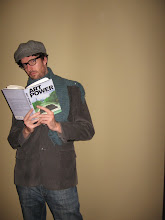It's been quite some time since I put forward words to fill this space, in a large part because of a busier than usual month of August. A trip to Toronto at the start of the month, a trip to the cottage mid-month, and many mini adventures in the spaces between have filled my time to capacity, leaving little time left to sit back and distill it all into anything approaching coherent commentary...but now, in the spirit of the "back to school" season, I'm having a "back to blog" renaissance.
For the past 5 days we've collectively witnessed the devastation in the Gulf Coast, and quite truly the images now reaching us have been such a raw exposure of what lies beneath our supposed developed world status quo. The poor are the last to be helped. The political will is crippled by its past sins of opportunism and reckless raiding of the treasury for partisan folly. The conversations I've had in recent days with friends have contained a recurring theme: we all watch helplessly, wondering how to begin to do anything for those stranded in a city where society has ceased to mean much. All of our usual coping mechanisms, the means to reach out, seem worth little in the face of such a massive breakdown of humane response. Finally we see the true cost of the current American Administration's policies, the almost limitless capacity for disingenuous sound-bytes, and the sheer ineptitude (callousness, even) when faced with a situation of true consequence, where the needs of the survivors should have been addressed days ago, and instead the buck keeps getting passed in the hopes of averting a political melt-down as opposed to a human tragedy.
And on and on it goes...
There have been many battles waged in recent years by the American Christian right, promoting family values and aggressively fighting against what they have perceived as liberal policies designed to erode 'morality' and faith-based living (abortion, evolution, contraception, homosexuality, etc.). What has been lost in this battle of the moral-right vs. the liberal philistines is the humanism that should be the core of any such belief system (be it Christian or otherwise), that places those least capable of caring for themselves at the centre of any relief effort, that takes care of the poor and dispossessed and that brings neighbours together in times of adversity instead of pitting individuals against one another in a vicious 'state-of-nature' style endgame for dwindling resources. All that to say, if, as many media commentators keep saying, we are to "learn lessons" from this tragedy (as though the news being broadcast were simply an interactive classroom exercise), I'd like to suggest a lesson for the list: HUMANISM. A return to the basics of commonwealth and shared responsibilities, to the respect and rights afforded individuals but within the context of their communities (local, national, international). I'm an idealist at times like these, I know. But with so much will for faith in America there must also exist a balancing force of understanding of the harder side of life: the work you must do not only for yourself but for everyone and anyone around you.
I don't mean to be prescriptive, it's just that watching the recent events unfold as they have has deeply disturbed me, and I suspect much of the world.
I'll end this here, because I detect an overly-preachy tone creeping into my words.
But a final thought: I hope we don't allow ourselves to forget what happened this week, and that once the water recedes and the dispossessed find at least provisional stability (at very least safety), that we ask ourselves the hardest questions and avoid the easiest answers.
Saturday, September 03, 2005
Subscribe to:
Post Comments (Atom)

1 comment:
notsirjohn rightly describes the present situation when he says: "We all watch helplessly, wondering how to begin to do anything for those stranded in a city where society has ceased to mean much." Now, with some progress being made in evacuating the city, how do we begin to think of the days ahead, the weeks ahead, the months ahead? Now, relatively safe, but far from home and with few or no resources, how will the people of New Orleans make a new start, where will they go, who will help them?
Toni Morrison, in her novel "Beloved" offers us a "sine qua non":
"She did not tell them to clean up their lives or to go and sin no more. She did not tell them they were the blessed of the earth, its inheriting meek or its glory-bound pure. She told them that the only grace they could have was the grace they could imagine. That if they could not see it, they would not have it."
Yes, the only grace we can have is the grace we can imagine. Hard words,
perhaps, but necessary ones to be understood by the evacuees themselves, by those who want to help them, by the many bureaucrats not very accustomed to using their imaginations and, above all, by the pitiful Commander-in-chief. j.
Post a Comment